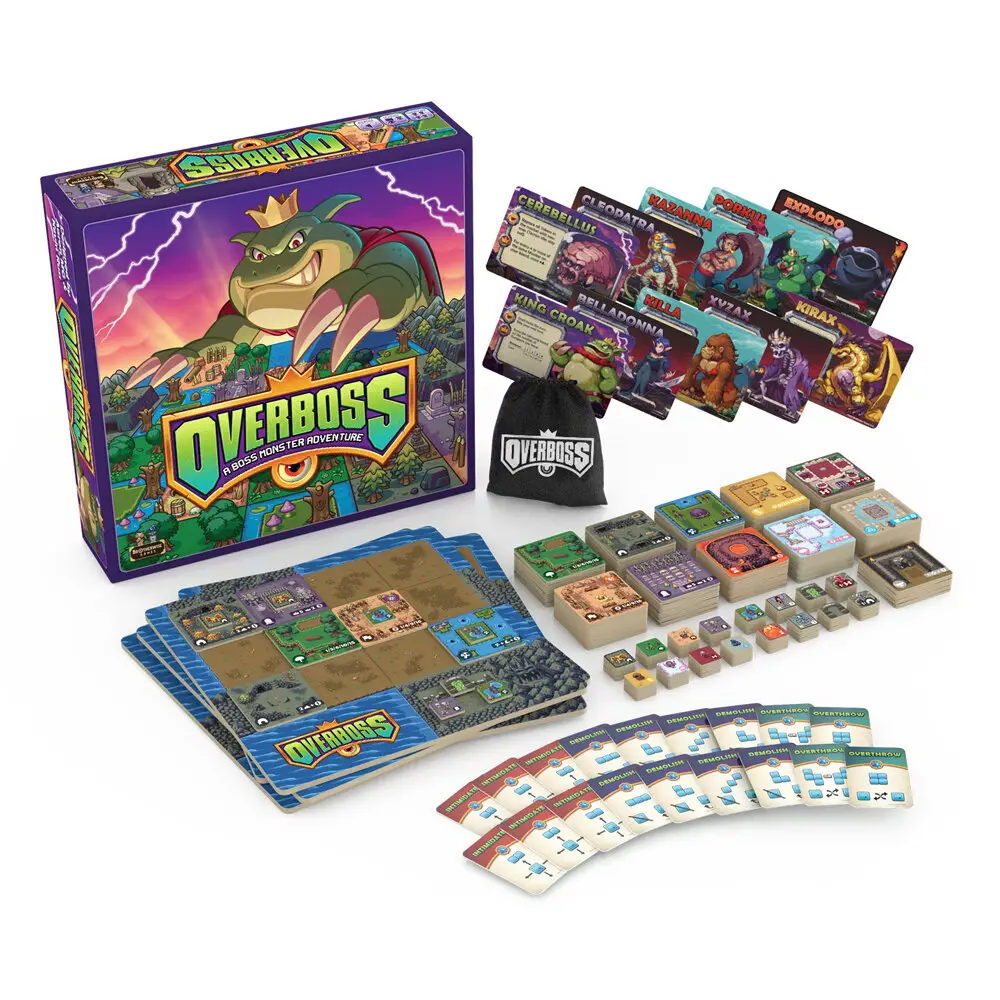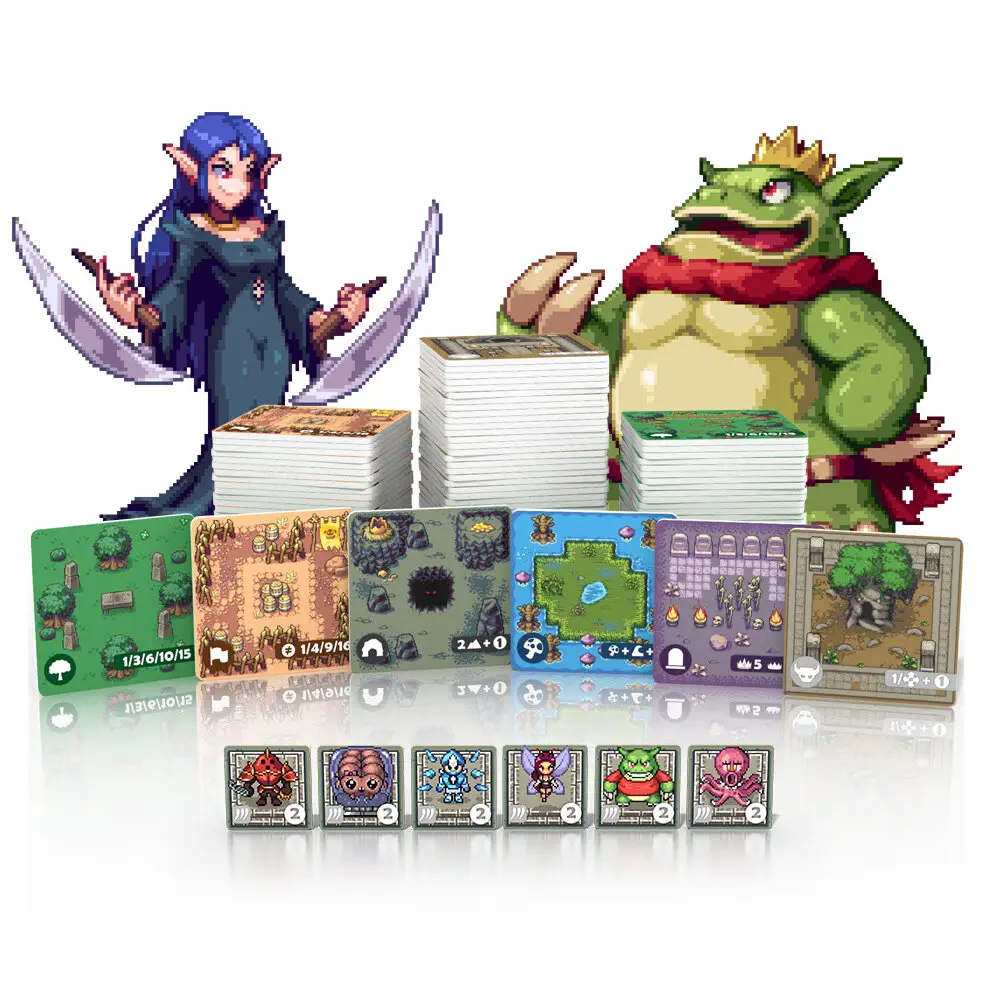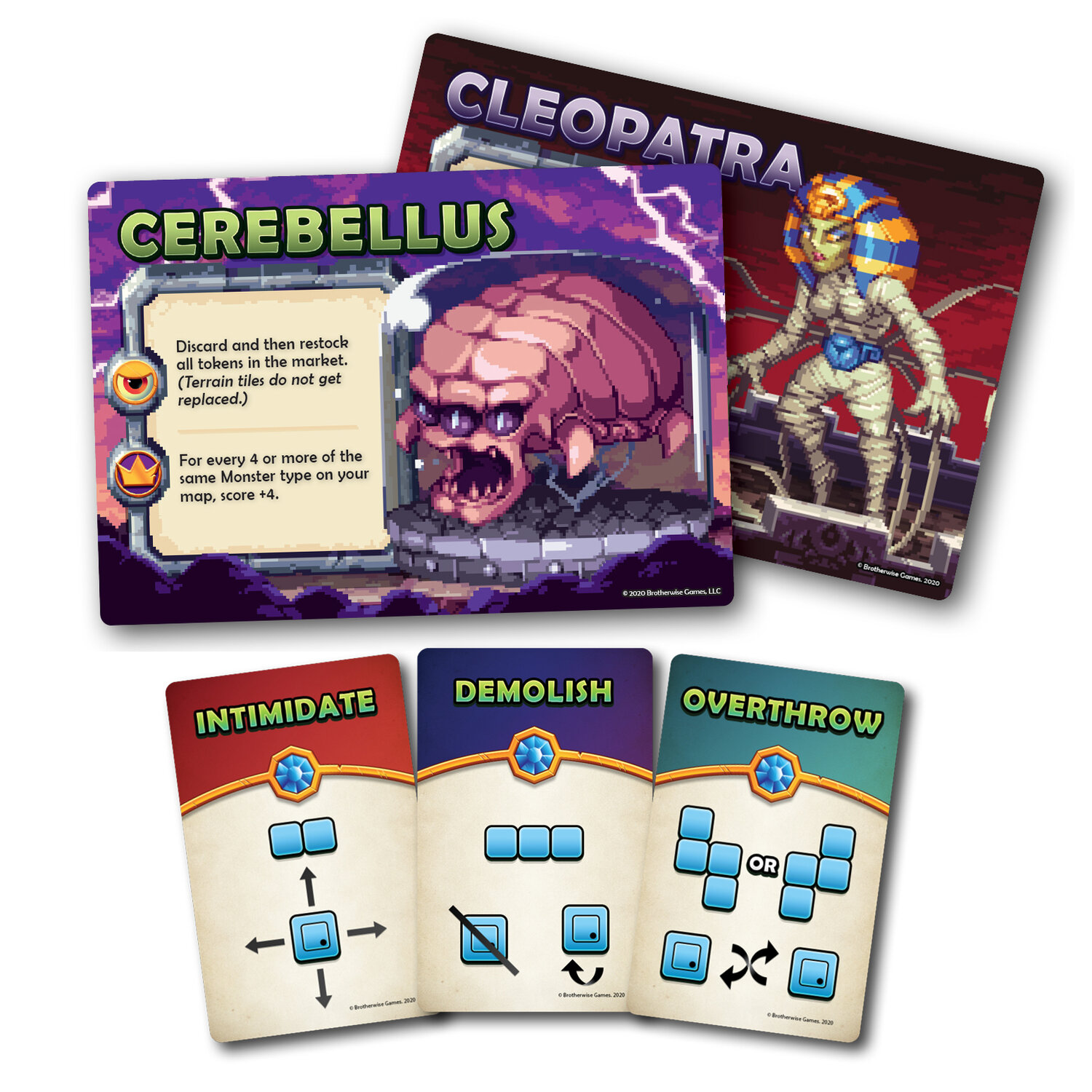Get ready to leave behind the dungeons of Boss Monster and step foot onto the overworld of Arcadia!
As a longtime fan of Brotherwise Games, I was eagerly anticipating the release of their latest game, Overboss: A Boss Monster Adventure, by Aaron Mesburne and Kevin Russ. Was my excitement for this tile-placing game misplaced? On the whole, I think not. Let’s dive into it.
What’s In The Box?

128 Terrain Tiles
123 Tokens
5 Double-Sided Player Boards
10 Terrain Selection Cards
18 Command Cards
10 Boss Cards
1 Token Bag
1 Score Pad
1 Solo Campaign Rule Book
How Does It Play?

In Overboss you play as a novice boss monster in the video-game inspired kingdom of Arcadia. By drafting and placing tiles and monsters on your board, you build an overworld map to thwart heroes, earning points for placing tiles in particular arrangements. Each tile comes with its own scoring rules, creating a wide variety of strategies and a good deal of replayability given that you only use a relatively small subset of the tiles, which are randomly selected each game.
At its core, Overboss is simple. Each turn you will select a tile and accompanying monster from a market row of four options, then place the tile on an empty space on your board and the monster on any open tile. Rinse and repeat until each player’s board is full. It is easy enough for anyone to pick up (great for kids and families), but offers enough strategic depth to delight more seasoned board game veterans.
The drafting mechanic gives players an interesting decision to make. Do you select a tile and monster to maximize your score, or to deny your opponent points? Should you draft a tile/monster pair because the tile is ideal or to make the most use of a particular monster type? For a player like myself, whose favorite part of games like this is meticulously agonizing over calculations to optimize my gameplay, this aspect of the game rewards that style of play. However I still find myself losing to more intuitive players, who draft based on which tile feels right.

The most ambitious aspect of Overboss, though, has to be the abundance of play options provided by the game. There are boss cards which add bonus scoring rules that apply only to the player who holds that particular boss; the bosses begin the game as hidden information, but can be revealed in order to use a powerful one-time ability. Reveal too early, though, and your opponent can counter your strategy. There is also an option to use a larger board to extend your game and another option to use “command” cards which allow you to manipulate tiles and monsters on your board or another if you are able to place your tiles in a specific pattern.
The Verdict?

Overboss is a good game to break out among a group of players who may not be too experienced with heavy strategy games. They’ll pick it up quickly and be able to hold their own fairly readily against more seasoned players. Unfortunately the price point is probably a bit too high to convince new or casual players to pick it up for themselves without a few plays under their belts.
That higher price has its payoffs though. The components are high quality, and Brotherwise’s partnership with Game Trayz solves the issue of piece storage in a beautiful and functional way. Good-bye baggies and rubber bands! The art of Overboss is especially charming with almost every tile having unique pixel art. It evokes the 16-bit aesthetic of SNES or Sega Genesis games.
In my opinion, the crown jewel of Overboss is the solo play mode. It has an extensive and thoughtful campaign that is great fun to explore. Especially during a pandemic, I appreciate games which give me the opportunity to play alone when I can’t get my regular group together. My biggest complaint has to be the command cards. It doesn’t feel very good to have one used against you, nor did I enjoy utilizing them against opponents. I acknowledge however that, for players who enjoy the “take that” aspect of board gaming, the command cards could be fun.
Overboss is a great way to spend an evening. It has entirely replaced other tile placement games like Kingdomino and Carcassonne for me and my play group. The play-time is roughly 30 minutes, and Overboss can be played by 1–5 players.
[rwp_box_criteria id=”0″]
Overboss can be picked up at BrotherwiseGames.com, Amazon, or your FLGS for $44.95.
Images courtesy of Brotherwise Games.
Have strong thoughts about this piece you need to share? Or maybe there’s something else on your mind you’re wanting to talk about with fellow Fandomentals? Head on over to our Community server to join in the conversation!
[rwp_box id=”0″]

